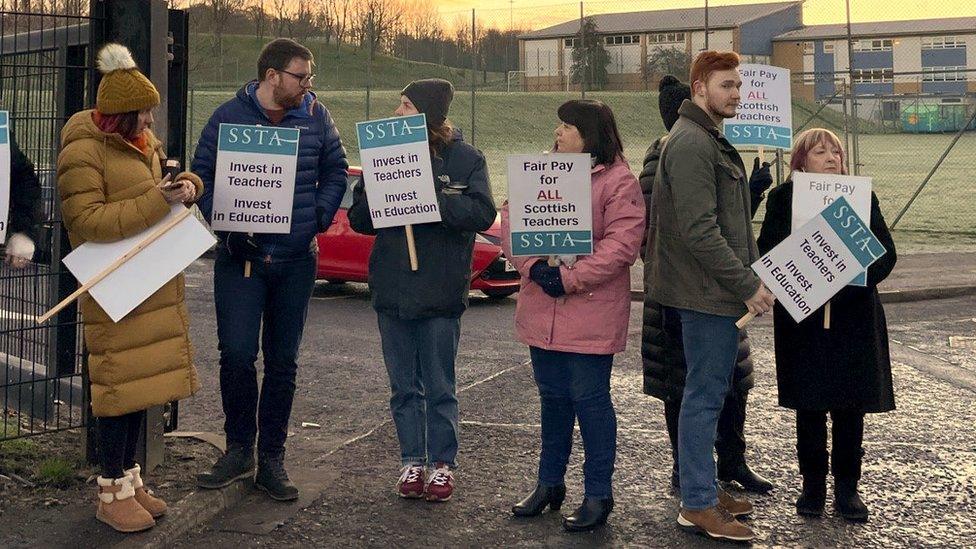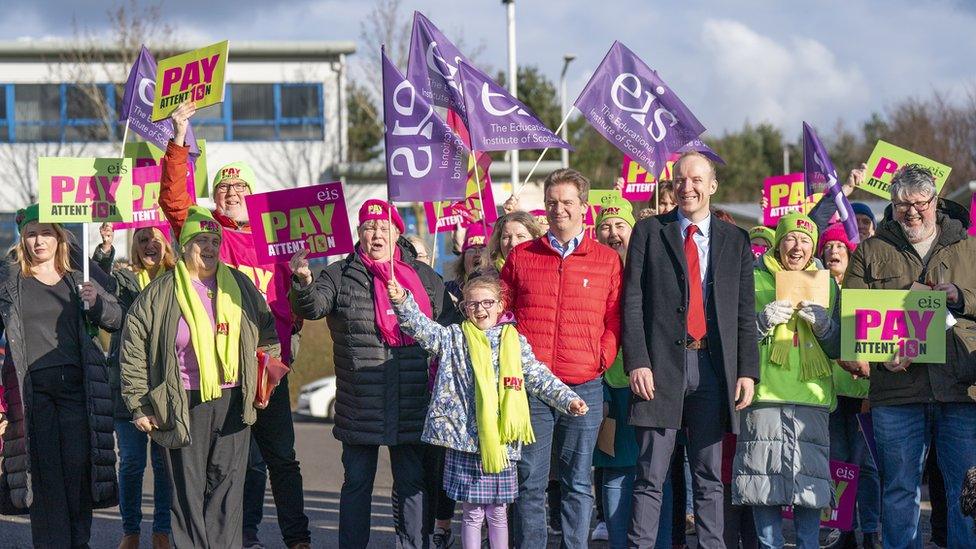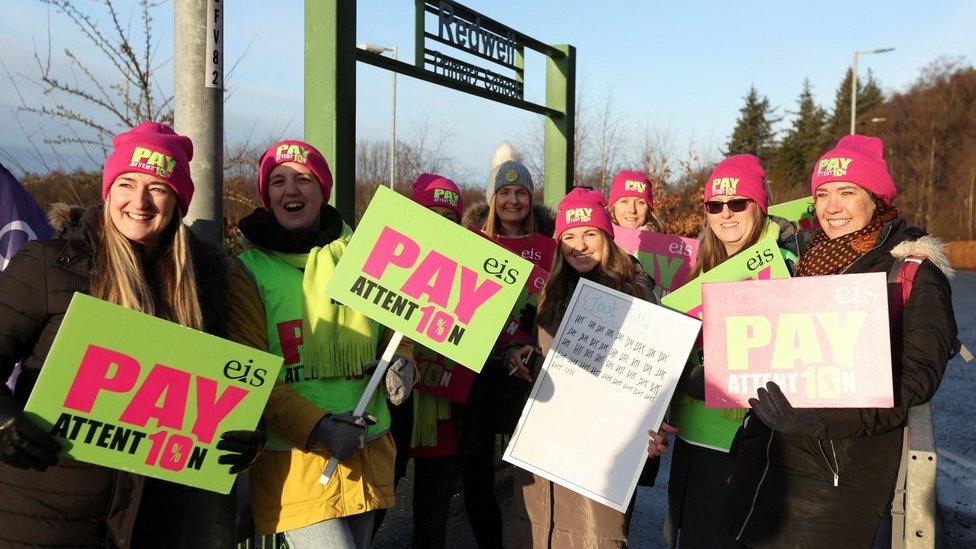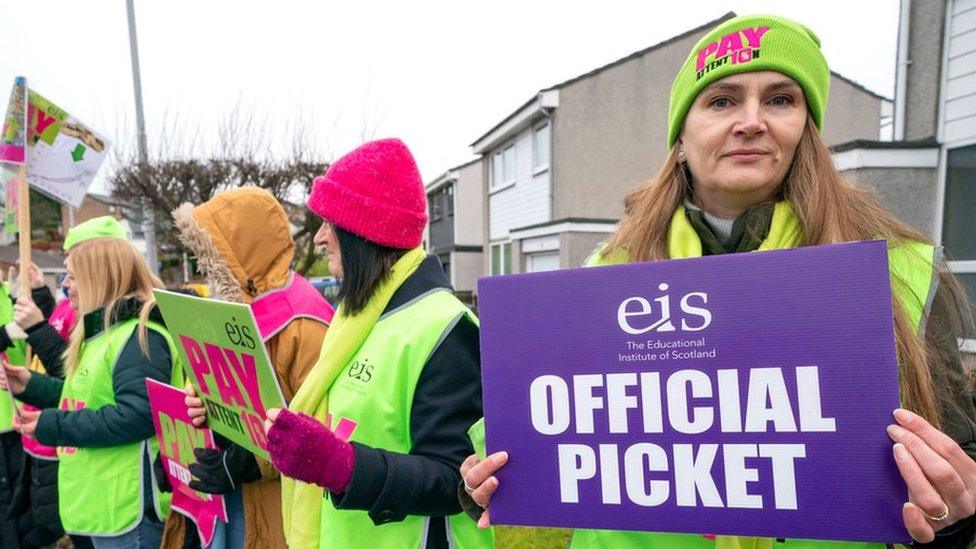SSTA teaching union agrees to postpone strike action
- Published

Members of the SSTA "marginally" voted to accept a new pay deal
A teaching union has agreed to defer strike action due to be held next week.
Members of the Scottish Secondary Teachers Association (SSTA) "marginally" voted to accept a new pay offer from the Scottish government.
However it was rejected by the Scottish Negotiating Committee for Teachers.
The SSTA said it would hold off on industrial action following the consultation with its members, but it still expected an improved offer in the coming days.
Industrial action was due to take place action on Tuesday and Wednesday next week.
Members of two other unions - the EIS and the NASUWT - will still strike on those days.
But the consultation with SSTA members showed a small majority would vote in favour of the Scottish government's new pay deal.
Under plans announced by Education Secretary Shirley-Anne Somerville last week, teachers earning up to £80,000 would see their pay rise by 6% from April 2022, and then another 5.5% from the start of the 2023 financial year.
Although the SSTA consultation showed members would vote in favour of the pay offer, it was rejected by the Scottish Negotiating Committee for Teachers - which includes the Scottish government, local authority body Cosla and other teaching unions.

Members of the EIS teaching union held three days of targeted strikes this week
The SSTA said it would reinstate industrial action should an improved pay offer not be forthcoming.
Education Secretary Shirley-Anne Somerville said: "I welcome these results and the SSTA decision to postpone the planned strike action next week.
"We are absolutely determined to do all we can to resolve this dispute and end this worry for children, young people, parents, carers, and teachers, too, who, I know, want to be back in the classroom."
It comes after members of the EIS teaching union concluded three days of targeted strike action in the Scottish Parliament constituencies of Ms Somerville in Dunfermline, Nicola Sturgeon in Glasgow, John Swinney in Perthshire, and Ross Greer in East Dunbartonshire.
They will participate in another round of targeted action from 7 to 9 March.


The decision by a small majority of SSTA members is a significant development.
The two other teachers unions - the EIS and the NASUWT - both rejected the pay offer made last week. Strikes on 28 February and 1 March will still cause massive disruption across the country.
The offer- 11.5% over two years - was still well below what the teachers' unions wanted.
Councils and the Scottish government have argued a bigger rise is unaffordable and would lead to cuts elsewhere.
Some may read the response of SSTA members as a sign that there could be a significant number of teachers across the profession as a whole who may be prepared to settle. It will embolden those on the employers' side who have called for action to be suspended by all the unions.
The question now is how the unions will respond to a new offer once one is made. How good will that offer need to be to end the dispute?
As things stand, virtually all pupils in Scotland face four days of serious disruption between next week and the middle of April. Three days of additional strikes are also planned in the areas represented by some key politicians including Nicola Sturgeon.
The government is urging councils to find ways of keeping schools open. Students preparing for exams and those whose teachers are not on strike might still be able to go in although most classrooms would be empty.
- Published15 February 2023

- Published22 February 2023
